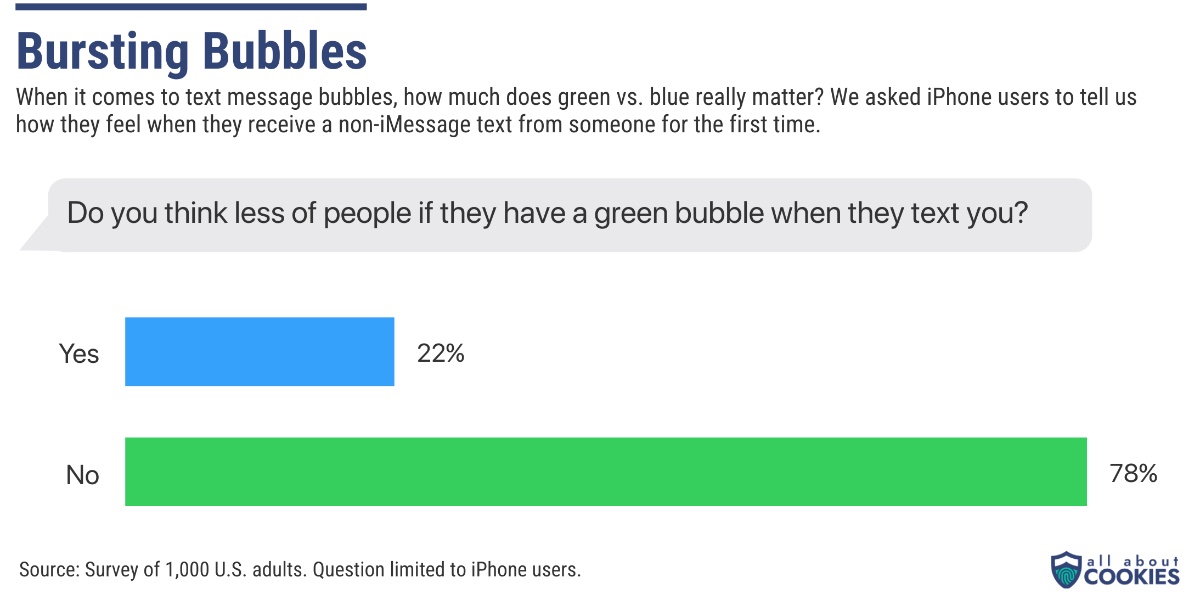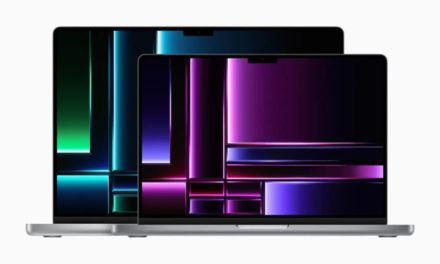In the U.S., 99% of the smartphone market falls into two camps: team Android or team iPhone. While the tech giants have been battling for market share for decades, users have also clashed on issues like compatibility, usability, and even aesthetics.
These issues come to a head most notably in incompatibility with messaging apps, where non-Apple users’ text messages show up as a green bubble instead of blue on iPhone. But is there truth to the rift between iPhone and Android users?
To find out how pervasive those kinds of attitudes are, the All About Cookies team surveyed people on both sides of the smartphone divide to see how they feel about green bubbles, blue bubbles, and each other. Here are the key findings from the report:
- The exclusion is real: Roughly a quarter (24%) of Android users have been left out of group chats because of their smartphone choices and over half (52%) report being teased or made fun of by iPhone users.
- More than 1 in 5 iPhone users (22%) say they think less of someone when they see a green bubble pop up in a text conversation and nearly 1 in 4 (23%) say it’s a dating dealbreaker.
- As a result, about a third (30%) of Android users have considered switching to an iPhone because of the sheer pressure and mockery.
- On top of prejudices, default texting apps incompatibility causes communication issues as well, with 38% of Android users reporting that they’ve missed or were unable to understand incoming messages as a result.
- The good news? More than 2 in 5 iPhone owners (42%) have relied on third-party messaging apps (like WhatsApp) to accommodate non-iOS users.
- A little more than one out of every five people with iPhones (22%) say that they legitimately think less of someone if a green bubble shows up the first time they text. Interestingly, this distinction appears to matter more to men, as just 15% of female respondents said they look down on Android users while nearly double that percentage of males (29%) said the same.
- The most common step iPhone owners take is to exclusively use non-texting platforms such as messaging services built into social media platforms when they communicate, something that more than one-third of Apple users (35%) have done.
- Another step taken by around a third of people with iPhones (30%) is to move group chats that include Android owners to third-party platforms such as WhatsApp.
- Some steps taken by a smaller proportion of people are more drastic. More than one-fifth (21%) have refused to add Android users to group chats, while roughly the same percentage (17%) have removed someone with an Android device from a group chat.
- Most drastic of all is choosing to stop texting entirely, which 15% of iPhone users say they have done.
- More than half of people with Android phones (52%) report that they’ve been made fun of at some point by iPhone users for their choice of mobile phone.
- More than a third (36%) of Android users say that they’ve felt negatively judged because of their phone, while more than one-in-four (26%) have actually felt embarrassed because of it.
- A strong portion of Android users (38%) also report that they’ve misunderstood or missed messages entirely because of incompatibility issues between Apple and Android operating systems, which may contribute to the judgment and negativity between those with different phones.
- A little less than one out of every three people with an Android phone (30%) have considered switching because of peer pressure applied by the iPhone users in their lives.
All About Cookies is an informational website that provides tips, advice, and recommendations about online privacy, identity theft prevention, antivirus protection, and digital security.
Article provided with permission from AppleWorld.Today





